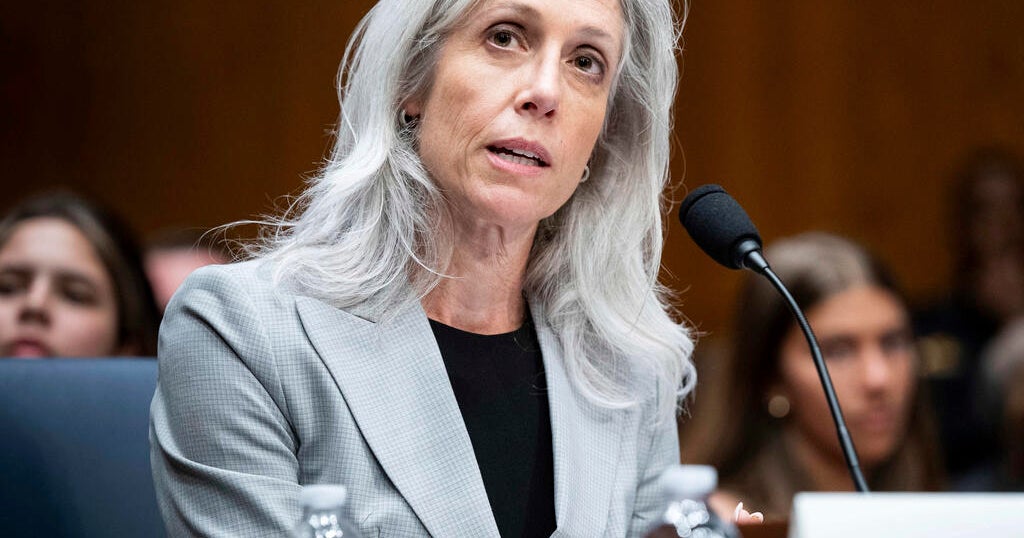COVID-19 Cases Surge in Southern States

Introduction
The COVID-19 pandemic has been an ongoing struggle for the United States and the rest of the world. Just when we thought we were making progress, cases are spiking again in certain areas of the country. According to NewsNation, the spike is particularly pronounced in one region of the country, which includes Arkansas, Louisiana, New Mexico, Oklahoma and Texas. The CDC reports that about 15% of COVID tests from this region are turning up positive.
Key Details
So what is causing this surge in cases in these states? Experts believe that the loosening of restrictions and the highly contagious Delta variant are major factors. The region also has a lower vaccination rate compared to other areas of the country. This puts the unvaccinated population at a higher risk for contracting the virus. Additionally, the hot summer weather may be contributing to the spread of the virus as people tend to spend more time indoors in air-conditioned spaces.
Impact
This spike in cases is not only concerning for the affected states, but it also has implications for the rest of the country. As the Delta variant continues to spread, it could potentially lead to a nationwide surge in cases. This could also delay the full reopening of the economy and further strain the healthcare system. It is crucial for everyone, especially those living in the affected region, to continue following safety measures and get vaccinated
About the Organizations Mentioned
NewsNation
## Overview NewsNation is a national news and entertainment cable network based in Chicago, Illinois, that has rapidly emerged as a significant player in the U.S. media landscape[2][3]. Owned and operated by Nexstar Media Group, Inc., it reaches approximately 75 million television households across the country, making it accessible to a wide audience through cable, satellite, streaming platforms, and its proprietary app[1][3]. The network distinguishes itself by emphasizing fact-based, unbiased news coverage, aiming to provide a full range of perspectives and avoid the partisan leanings often associated with other major cable news channels[1][2]. ## History and Evolution Originally launched as WGN America, the network rebranded as NewsNation in March 2021, signaling a strategic shift from general entertainment to a focus on national news programming[1][4]. This transition was part of Nexstar’s broader vision to leverage its extensive local news infrastructure—boasting over 5,000 journalists in 200 newsrooms nationwide—to deliver both local and national stories with depth and context[1][3]. The rebrand included an expanded lineup of news and talk shows, such as “NewsNation Prime,” “Morning in America,” and evening programs like “On Balance” and “Banfield”[1][3]. ## Key Achievements and Current Status NewsNation has quickly gained recognition as America’s fastest-growing cable news network, with a mission to “report the facts and let viewers take it from there,” echoing the early ethos of Fox News but with a commitment to centrist, unbiased journalism[1][2]. Under the leadership of Cherie Grzech, a veteran of Fox News, the network has increased its ratings and secured greater access to major news events, including coverage of the Trump White House[2]. Its programming now includes a robust morning block, a live primetime national newscast, and a slate of evening talk shows, differentiating it as the
CDC
The **Centers for Disease Control and Prevention (CDC)** is the premier national public health agency of the United States, operating under the Department of Health and Human Services and headquartered in Atlanta, Georgia. Its primary mission is to protect public health and safety through disease control, injury prevention, and health promotion both nationally and globally[1][8]. Established in 1946 initially as a single "Center for Disease Control," the agency expanded and reorganized in 1980 into multiple specialized centers, reflecting a broader focus beyond infectious diseases to include environmental health, chronic disease, occupational safety, and health education[7]. The CDC comprises various centers and institutes, such as the National Center for Immunization and Respiratory Diseases, the National Center for Chronic Disease Prevention and Health Promotion, and the National Institute for Occupational Safety and Health (NIOSH), among others. These centers enable the CDC to address a wide array of public health challenges through research, surveillance, policy development, and education[2]. It also plays a key role in emergency preparedness and response, demonstrated notably during the COVID-19 pandemic, where its guidance shaped public health actions despite complex political and social dynamics[8]. Key achievements include pioneering epidemiological research, controlling outbreaks of infectious diseases, advancing vaccine safety and immunization programs, and addressing emerging health threats such as obesity and diabetes. The CDC is recognized for disseminating authoritative health information, including the widely cited Morbidity and Mortality Weekly Report (MMWR), and for its global collaborations with health organizations worldwide[1][3][8]. Currently, the CDC is undergoing organizational adjustments to focus more intensively on infectious diseases, as part of the 2025 Department of Health and Human Services reorganization. This includes absorbing the Administration for Strategic Preparedness and Response while shifting some functions like occupational safety to new entities[1]. The agency’s comprehensive approach, backed by science and government funding, positions it as a critical leader in public health innovation, disease prevention, and health security i


















